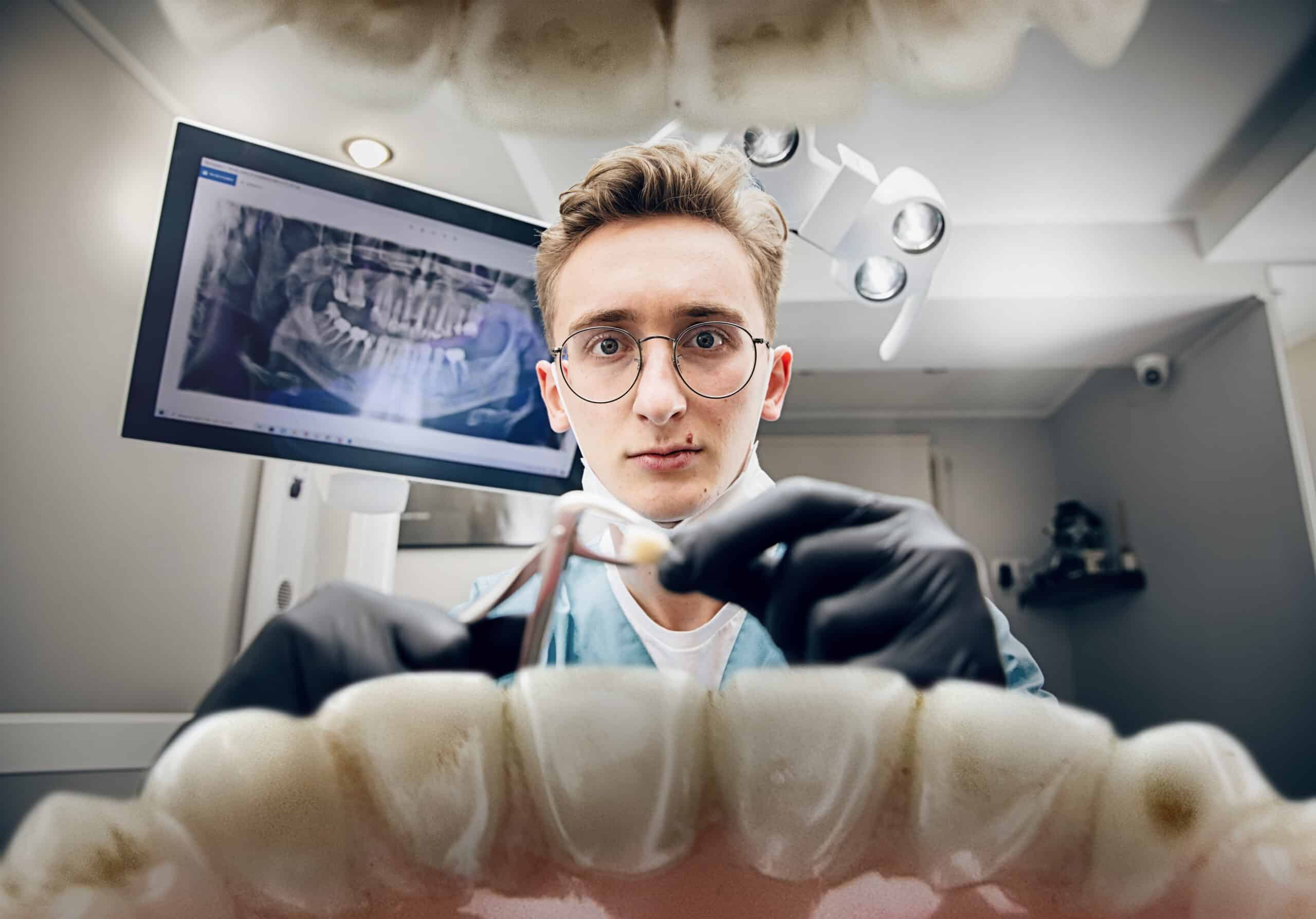When Are Dental Implants The Best Option For Tooth Replacement?
By :
Affordable Dentist | October 13, 2023
The quest for an ideal solution in tooth replacement has evolved significantly. From traditional dentures to bridges, advancements in dental technology have provided an array of options. However, dental implants stand out as a remarkable innovation, offering a permanent and natural-looking solution for those grappling with tooth loss. Dental implants are not merely cosmetic enhancements; they mimic the natural structure of a tooth. Comprising a titanium post surgically implanted into the jawbone, an abutment that connects the post to the replacement tooth, and the prosthetic tooth itself, this structure ensures stability, functionality, and aesthetics akin to natural teeth.
Understanding Dental Implants
Dental implants have become a revolutionary solution for replacing missing teeth and restoring oral function and aesthetics. Understanding the fundamentals of dental implants is essential for individuals considering this transformative dental procedure. Dental implants are artificial tooth roots made of biocompatible materials, usually titanium. Surgically implanted into the jawbone, they provide a stable foundation for replacement teeth, such as crowns, bridges, or dentures.
Dental implants comprise three major elements- the implant fixture, abutment, and prosthetic tooth. The implant fixture is a titanium post or screw surgically placed into the jawbone. On the other hand, an abutment is a connector that attaches to the implant fixture and supports the prosthetic tooth. Lastly, a prosthetic tooth is a visible part of the dental implant, such as a crown, bridge, or denture, custom-designed to match the patient's natural teeth.
Signs That You Need A Dental Implant
Permanent Tooth Loss
Dental implants are especially beneficial when faced with permanent tooth loss due to decay, trauma, or other oral health issues. Unlike removable dentures, implants provide a fixed and durable solution, eliminating concerns about slippage or discomfort.
Preserving Jawbone Health
Traditional tooth replacement options may not address the gradual loss of jawbone density after tooth extraction. Dental implants stimulate the jawbone, preventing deterioration and maintaining facial structure over time.
Enhanced Functionality
Implants function like natural teeth, restoring the ability to bite and chew confidently. They are particularly advantageous for those missing molars or multiple teeth, offering improved stability during chewing.
Aesthetics And Confidence
Implants integrate with the surrounding natural teeth, providing a visually harmonious smile. Restoring a complete and natural-looking set of teeth often contributes to increased self-esteem and confidence.
Long-Term Investment
While the initial cost of dental implants may be higher than some alternatives, their longevity makes them a cost-effective choice in the long run. With proper care, dental implants can last a lifetime, eliminating the need for frequent replacements or adjustments.
Avoiding Adjacent Tooth Compromise
Dental implants don't rely on adjacent teeth for support, unlike traditional bridges. Preserving the integrity of neighboring teeth is crucial for long-term oral health, making implants a more conservative option.
Stability And Comfort
Implants fuse with the jawbone, providing a stable foundation for the replacement tooth. This stability contributes to a more comfortable experience without the irritations or discomfort of removable dentures.
Considerations Before Opting For Dental Implants
- Overall Health: Certain health conditions or medications may impact the success of dental implant surgery. Consultation with a healthcare professional is vital.
- Bone Density: Sufficient jawbone density is essential for successfully integrating dental implants. In cases of bone loss, bone grafting may be necessary.
- Commitment to Oral Hygiene: Proper oral hygiene is critical to the success of dental implants. Regular brushing, flossing, and dental check-ups are imperative.
- Patience during the Healing Process: Dental implant surgery involves a healing period during which osseointegration occurs. Patients need to be patient and follow post-operative care instructions diligently.
Dental implants represent a groundbreaking solution in modern dentistry, offering aesthetic improvements and functional and long-lasting benefits. When faced with tooth loss, particularly in permanent cases, considering dental implants is a decision toward a healthier, more confident future. The transformative nature of these implants goes beyond a mere cosmetic fix; it's an investment in overall well-being and a smile that lasts a lifetime. If you're exploring tooth replacement options, delve into the world of dental implants and embark on a journey toward a restored and radiant smile.


